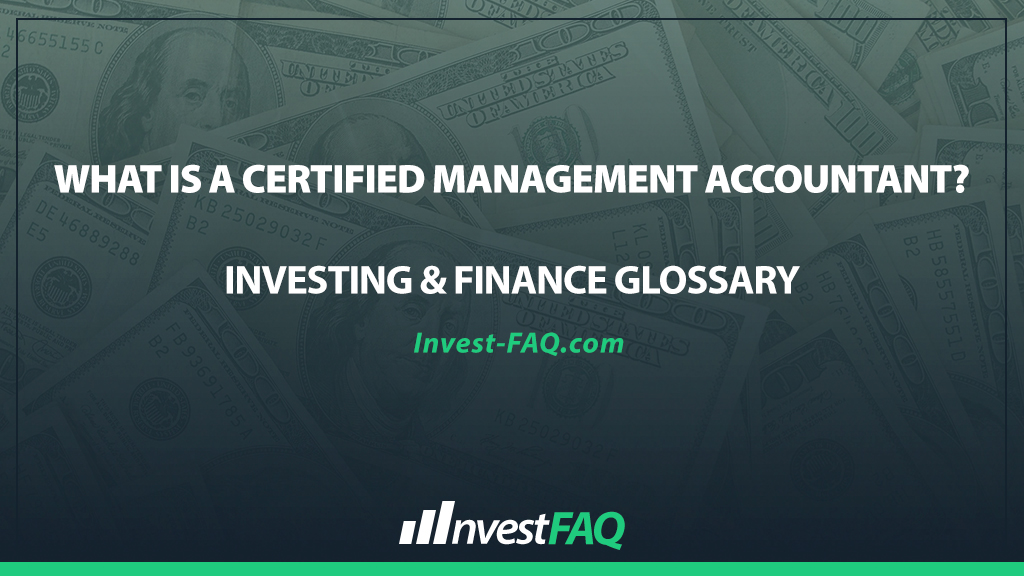
Certified Management Accountant (CMA)
Contents
A Certified Management Accountant (CMA) is a professional designation awarded by the Institute of Management Accountants (IMA) that signifies expertise in financial management and strategic business performance. CMAs specialize in areas such as financial planning, analysis, control, decision support, and professional ethics, equipping them with the skills to enhance business strategy and financial performance.
The CMA certification is widely recognized in the business world, symbolizing a high standard of proficiency in management accounting.
Professionals with a CMA designation play a crucial role in their organizations, making strategic decisions that guide financial planning, budgeting, investment analysis, and risk management.
They work across various sectors, including manufacturing, services, public firms, and private enterprises, bringing a strategic financial perspective to executive teams.
Example of a Certified Management Accountant (CMA)
Consider “EcoSolutions,” a company seeking to expand its renewable energy projects. Jane Doe, CMA, the company’s chief financial officer (CFO), conducts a comprehensive financial analysis to determine the feasibility and potential returns of investing in new solar farms.
Analysis Process:
Jane evaluates the initial investment costs, expected cash flows, and potential financial risks.
She uses advanced financial modeling techniques to forecast project returns and assesses how the investment aligns with the company’s strategic goals.
Decision Support:
Based on her analysis, Jane prepares a detailed report recommending specific investment actions, highlighting potential financial outcomes and advising on risk mitigation strategies.
Executive Presentation:
Jane presents her findings to the executive board, providing them with insights and data-driven recommendations to inform their decision.
In this scenario, Jane Doe, leveraging her CMA expertise, plays a pivotal role in guiding her company’s strategic investment decisions.
Her comprehensive analysis and strategic insight enable EcoSolutions to make informed decisions about expanding its renewable energy portfolio.
The CMA designation equips Jane with the necessary skills to analyze complex financial data, assess market and investment risks, and advise on strategic financial planning, demonstrating the value CMAs bring to business strategy and financial management.
Significance for Investing & Finance
The CMA certification holds significant importance in the accounting and finance industry due to several factors:
Expertise in Management Accounting: The CMA credential signifies advanced knowledge and expertise in management accounting, setting certified professionals apart in their field.
Strategic Decision-Making: CMAs contribute to strategic decision-making within organizations, applying financial analysis and strategic thinking to guide business decisions and performance improvements.
Global Recognition: Recognized globally, the CMA designation opens doors to international career opportunities and enhances professional credibility in the global market.
Commitment to Ethics: CMAs adhere to a strict code of professional ethics, ensuring integrity and transparency in financial reporting and business practices.
In summary, a Certified Management Accountant (CMA) plays an integral role in the strategic management of businesses, offering expertise in financial planning and analysis that supports business growth and financial health.
The CMA designation not only underscores a professional’s commitment to excellence in management accounting but also enhances their ability to contribute to the strategic success of their organizations.
FAQ
What qualifications are needed to become a Certified Management Accountant (CMA)?
To become a CMA, an individual must hold a bachelor’s degree, have two years of professional experience in management accounting or financial management, and pass a two-part exam covering financial planning, analysis, control, decision support, and professional ethics.
How does a CMA differ from a CPA in terms of job roles and responsibilities?
While Certified Public Accountants (CPAs) focus on external financial reporting, tax advice, and audit and assurance services, Certified Management Accountants (CMAs) specialize in internal financial management, including strategic planning, financial analysis, and decision support within organizations.
Can a CMA certification enhance career opportunities in finance and accounting?
Yes, the CMA certification is highly regarded in the field of management accounting and finance, opening up advanced career opportunities such as financial analyst, financial manager, cost accountant, and chief financial officer, among others.
Is continuing education required for CMAs to maintain their certification?
CMAs are required to complete continuing professional education (CPE) hours and maintain membership with the Institute of Management Accountants (IMA) to ensure their skills and knowledge remain up-to-date with industry standards and practices.
